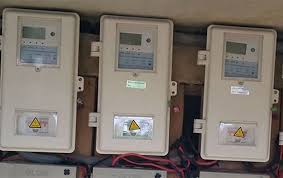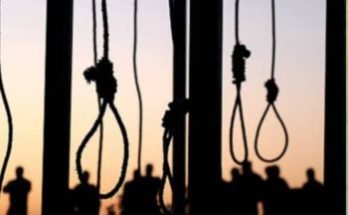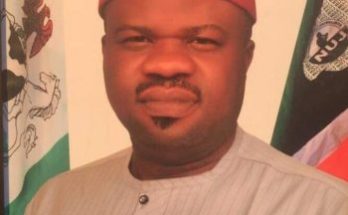At a time power distributors are still finding it tough to meter consumers in their various franchise areas, over-billing of end-users has become another nightmare; KEHINDE OSASONA in this piece takes a second look at the issue.
In bustling neighbourhoods across the country, it is not uncommon to see residents gather and discuss in hushed tones issues relating to the metering of houses and ‘crazy’ bills.
In most cases, their conversations revolve around the new meter prices and the increasing reliance on estimated billing by the Power Holding Company of Nigeria (PHCN); an issue that has continued to unsettled many consumers.
For years, Nigerians have grappled with the challenges of inconsistent power supply and opaque billing practices.
However, the recent hike in meter prices has introduced a new layer of complexity, leaving many consumers frustrated and uncertain about the future of their electricity costs.
The burden
Recently, it was reported that power distribution companies over-billed about 7.1 million unmetered electricity consumers between January and September 2023.
The report stated that in the various Regulatory Interventions for Non-Compliance with the Order on Capping of Estimated Billing to Unmetered Customers, issued to the 11 DisCos by the Nigerian Electricity Regulatory Commission, an agency of the Federal Government, it was established that the power distributors raked over N105 billion as a result of over-billing.
But in a series of posts on its official X handle, NERC stated that it told the owners of Discos during the meeting in Lagos that the distribution firms were bound to provide meters, adding that this would also ameliorate the financial crisis in the sector.
While explaining the key role of metering in addressing some of the challenges in the NESI, the NERC chairman, Sanusi Garba, was quoted as saying, “Metering is an issue. Without metering, the issue of liquidity will not be resolved.”
In the absence of functional meters, Blueprint Weekend recalls that many consumers have been subjected to estimated billings; a practice where PHCN assigns electricity usage values to households based on assumptions rather than actual consumption.
This method has long been criticised for its lack of accuracy and fairness, often resulting in exorbitant bills for minimal usage.
Mrs. Folukemi Abudu, a retired teacher, recounted her ordeal, “For months, I have received bills that far exceed my actual consumption. My attempts to get a meter have been unsuccessful due to the high costs and bureaucratic delays. It’s frustrating to pay for electricity I haven’t used.”
Price hikes vs public outcry
The Nigerian Electricity Regulatory Commission (NERC) recently announced a significant increase in the cost of purchasing new electricity meters. The price for a single-phase meter has jumped from ₦44,896.17 to ₦58,661.69, while a three-phase meter now costs ₦109,684.36, up from ₦82,855.19. This sharp increase has sparked a wave of discontent among consumers, many of whom are already struggling with the economic impact of the COVID-19 pandemic and the fuel subsidy regime.
Hassan Kudu, a business owner in Wuse, expressed his frustration thus, “The new meter prices are simply unaffordable for many of us. We’ve been trying to manage our expenses, and now this? It feels like we are being punished for wanting transparency in our electricity billing.”
Another consumer, Umoh Thomas, wondered why power supply is still where it is despite efforts by the present administration to make things work.
“I think if it would require reversing some policies, the present administration should do it because power is essential in our everyday life both for domestic and industrial use.
“The billing is not even predictable and has become a one day, one challenge kind of thing. Our new President can fix it and that he should do,” he said.
PHCN’s response, future plans
PHCN, on its part, has defended the increase in meter prices, citing rising costs of production and the need to ensure quality service delivery. An official from PHCN, who requested anonymity, said, “The price adjustment is necessary to maintain the quality and reliability of our metering infrastructure. We understand the concerns of consumers and are working on schemes to make meters more accessible through installment payments.”
The official also highlighted ongoing efforts to phase out estimated billing through the National Mass Metering Programme (NMMP), which aims to provide over six million meters to Nigerian households. However, the pace of this rollout has been slower than anticipated, leaving many consumers in limbo.
Community resilience, advocacies
Despite the challenges, communities are banding together to seek solutions. Grassroots organisations and consumer advocacy groups are amplifying the voices of those affected, pushing for more transparency and accountability in the electricity sector.
They argue that affordable and fair access to electricity is a fundamental right and are calling on the government to subsidise meter costs for low-income households.
In a recent town hall meeting organised by the Lagos State Consumer Protection Agency, residents voiced their concerns directly to NERC representatives. The discussions were heated, but constructive, with promises from the regulators to review the pricing structure and expedite the metering process.
Looking ahead
As Nigeria continues its journey toward a more stable and transparent electricity supply system, the concerns of consumers and residents alike highlight the urgent need for reforms. Affordable meter prices and the elimination of estimated billing are not just about convenience; they are essential for building trust between PHCN and its customers.
For many unmetered consumers, the estimated billing system in the power sector is exploitative and is allegedly designed primarily to rip them off.
Some Nigerians are of the view that there is usually a disparity between the power consumed within a particular period and the estimated bill received from the DisCos.
But for now, across the country, the conversation continues. Neighbors exchange tips on conserving energy, share contact information for local consumer rights groups, and, above all, hold on to the hope that a fairer, more reliable electricity supply system is on the horizon.
Views
An expert, Edmund Olotu, while proffering the way forward, noted that with significant natural gas reserves, estimated at 192 trillion cubic feet and currently ranks ninth in the world, power generation should not be a problem.
Stressing the need for relevant policies geared towards production and supply, he said with militancy largely quelled in Nigeria and with the country “experiencing increased pipeline security, time to consolidate is now.”
“The government should be building pipelines or stimulating the private sector to build gas pipelines which would terminate at every transmission site in every state. Ideally, there should be a gas pipeline terminal within 1km of a transmission facility in each state at the confluence where transmission feeds into the distribution network.
“This would enable clusters of generation sites to be located around gas terminals in each state. And electricity generated can be evacuated easily through the transmission and the distribution networks.
“Another issue that affects the distribution companies is metering. Again this is a case of doing the same thing over and over and over again, and expecting different results. Discos cannot afford to meter.
“That is clear. Metering companies are operating in an un-bankable industry at the moment so they can’t give the discos equipment financing. Even if they did, at a 28% combine electricity loss and 42% on average collections, they would soon go bankrupt because the discos would not earn enough to allow them to recoup their investments in a short period of time.”




